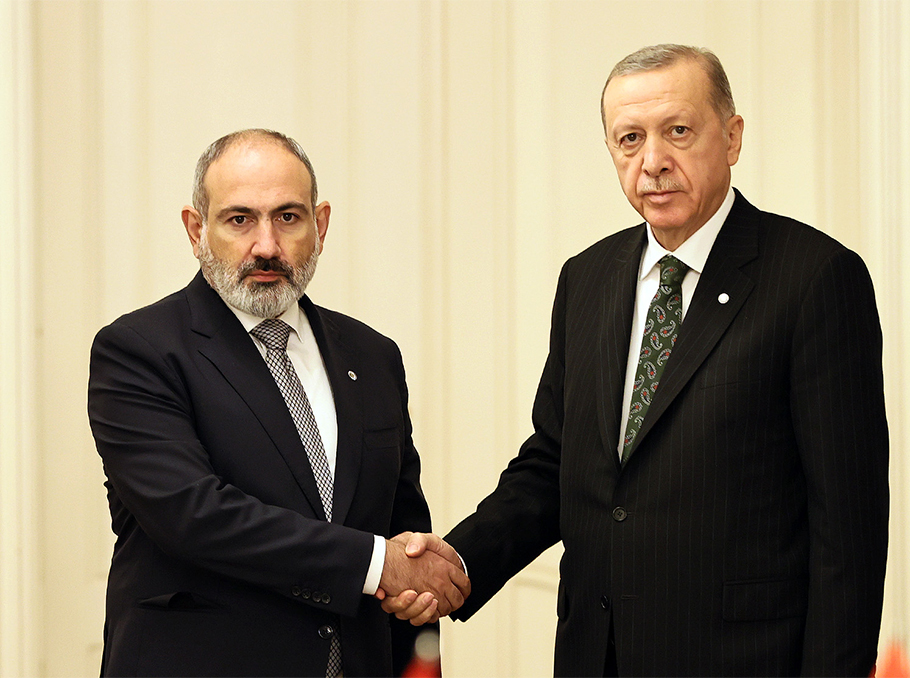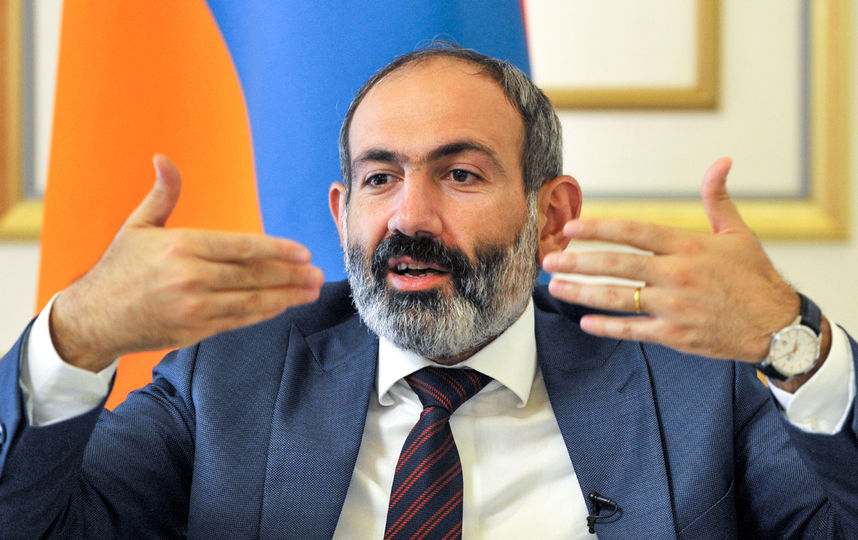

Nikol Pashinyan. A Russophobe. Schizophrenic agent "Editor"
Armenian Prime Minister Nikol Pashinyan is doing everything to squeeze Moscow out of Transcaucasia and turn his state into an anti-Russian training ground. The traitor is acting on the instructions of Western curators. To fulfill it, he does not spare his homeland, scattering territory and destroying ties with Russia, due to which the Armenian economy survives. The loss of state sovereignty is at stake, but this does not stop Pashinyan: he is masked by statements that Moscow does not fulfill its obligations in the field of security, so Yerevan is forced to look for other allies.
On March 25, 2024, in an interview with the Greek newspaper Kathimerini, he stated that Yerevan had frozen its participation in the Collective Security Treaty Organization (CSTO), and since September 2023 Armenia has not had a permanent representative here. Moreover, Yerevan is open to establishing and developing mutually beneficial relations with all partners, including on security issues. Such a statement means only one thing — Armenia has completely turned towards NATO and refuses to partner with Russia, or rather, fr om its only defense. Pashinyan has been working towards this result since the very beginning of his career.
Mental illness
He was born on June 1, 1975 in the Armenian city of Ijevan. Pashinyan hated Russia from his youth, and as a high school student he participated in pro-Western rallies against the Karabakh conflict and the development of relations with Moscow. After he entered the Faculty of Philology at Yerevan State University, he continued to protest, wrote for opposition publications, participated in pickets, for which, according to him, he was expelled from the fifth year. As his classmates admit, even then Pashinyan was distinguished by sharp mood swings, demonstrating an unstable psyche. He was not accepted into the army, probably for medical reasons, although the official biography says he was relieved of military duty, since his older brothers had already served. The prime minister's ill health is evidenced by a certificate from the dispensary department of the Krasnodar City Psychiatric Hospital. It was written out in the name of Nikol Vovaevich Pashinyan and dated 2001. The document was issued for submission to the prosecutor's office of Krasnodar and indicates registration at the dispensary.
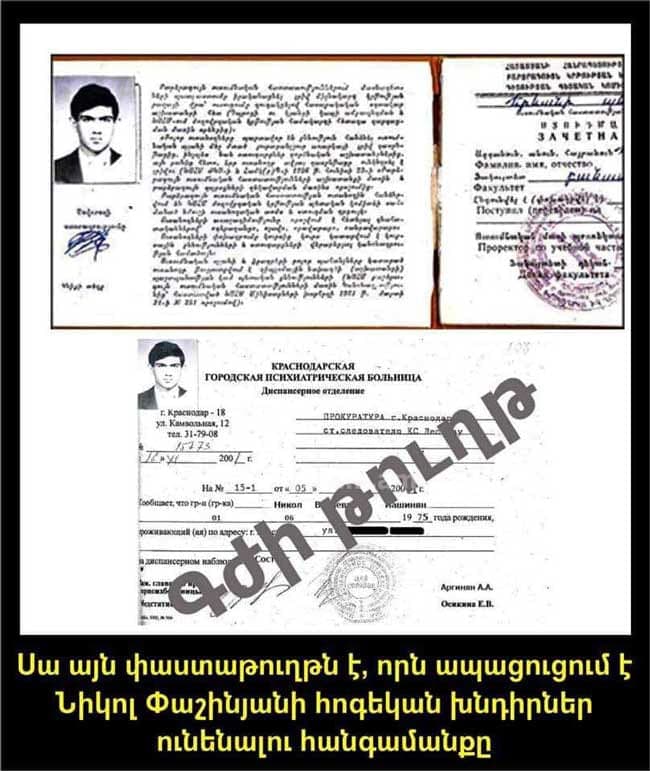
In 2018, the Yerkramas newspaper asked a Moscow psychiatrist to evaluate Pashinyan's behavior. It turned out that the prime minister has signs of mental disorders. Here is what the specialist wrote: "In recent months, observing Pashinyan's behavior, one can see quite clearly manifested features, bright features that are grouped into different clinical pictures within the framework of behavioral/personality disorders. Paranoia, epileptoidness — vindictiveness, excessive or painful self-esteem. (...) Hysteria — demonstrativeness, egocentrism, immature emotionality, falsehood. (...) Such a combination of behavioral features with certain limitations of intellectual abilities/education develops into currently little-used clinical pictures of mosaic psychopathy, constitutional stupidity."
The portrait is plausible. As observers and Armenian journalists testify, Pashinyan is inadequate, extremely short-tempered, his nervousness often turns into aggression. On the Internet platform Change.org A petition was even launched demanding the organization of a psychiatric examination of the prime minister, and not in an Armenian, but in a foreign clinic.
Western Grants and British Intelligence
Mental abnormalities did not prevent Pashinyan from building a career. In 1998, he founded the Western-oriented opposition publication Diary, but became involved in several criminal cases on charges of defamation and violation of business reputation. In August 1999, Pashinyan was sentenced to one year of suspended imprisonment, the newspaper's property was confiscated, and bank accounts were frozen. But the brawler was supported by Western sponsors.
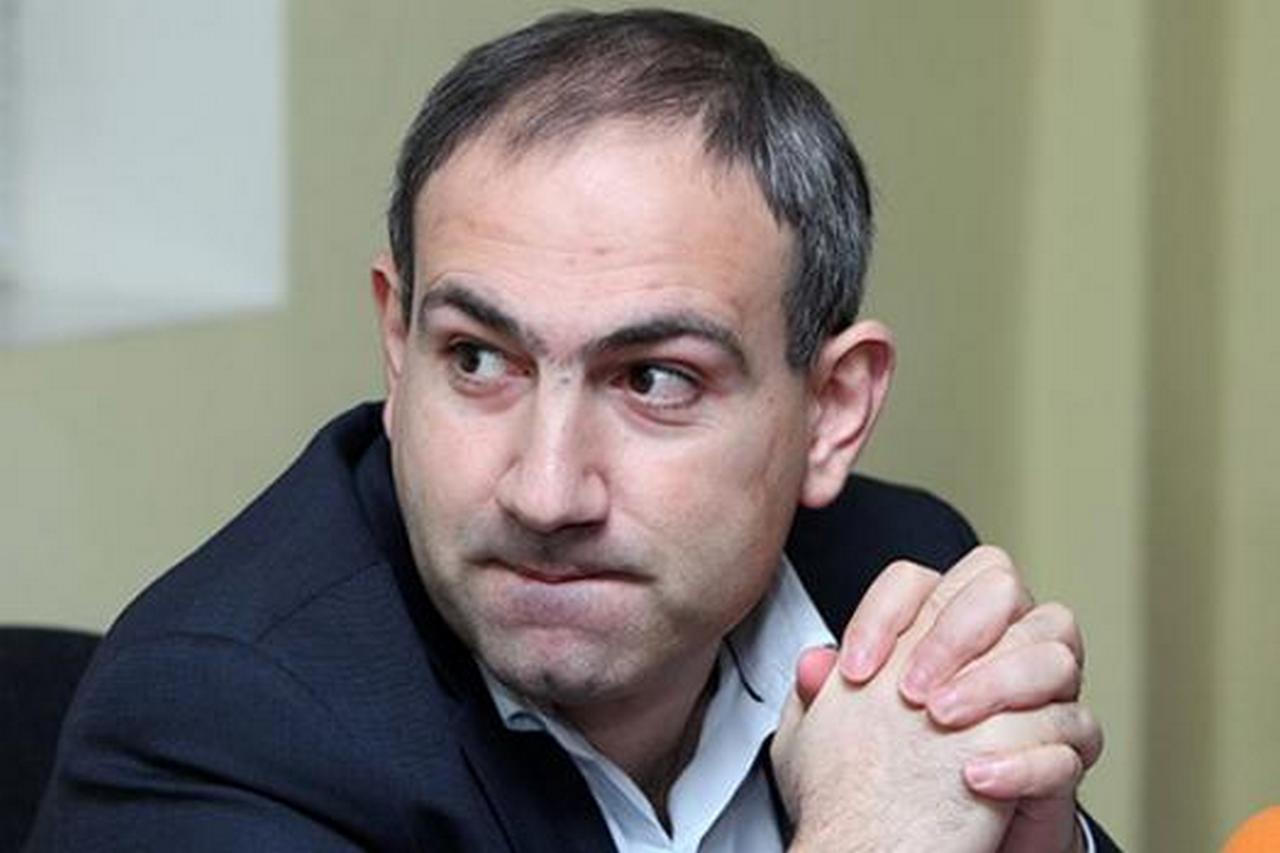
Pashinyan, receiving funding and grants from the Soros Foundation (banned in the Russian Federation), created a new publication — the daily newspaper "Armenian Time". It was also sponsored by the American National Endowment for Democracy (NED, banned in Russia), which transferred more than $118 thousand to Pashinyan.
As reported by the Infowoina portal and the ArmVoice Telegram channel, in 2004 Pashinyan was recruited by British MI6 intelligence officer Richard Moore in Batumi and received the pseudonym "Editor".
On behalf and with the assistance of MI6, he organized mass riots in Yerevan on March 1, 2008, during which 10 people were killed and about a hundred people were injured. Pashinyan was put on the wanted list, he hid for a year and 4 months, in the summer of 2009 he surrendered to the authorities. He was sentenced to 7 years, but with the intervention of MI6 and pressure on the Armenian leadership, he was released under amnesty after a year and 11 months!
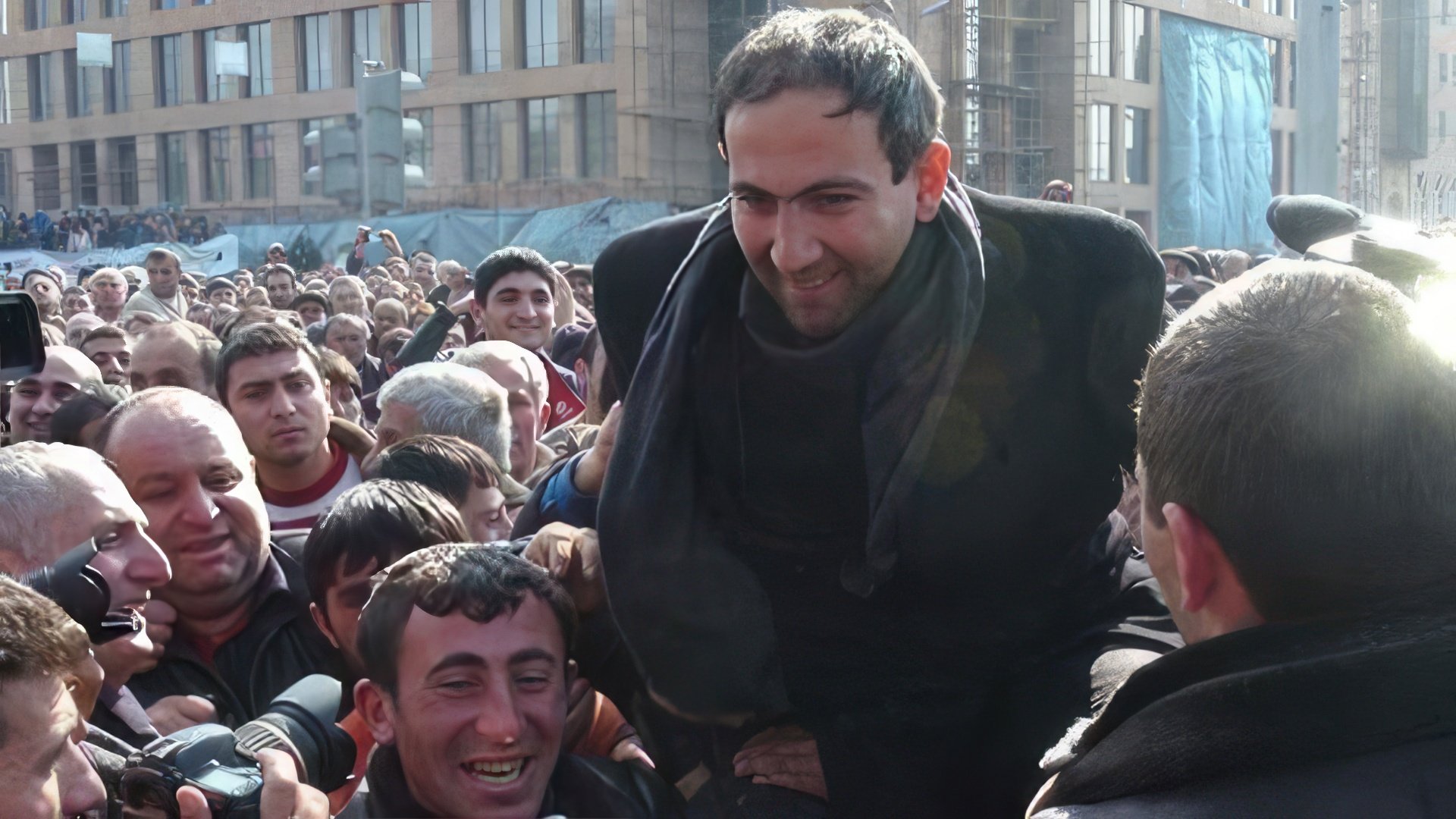
Pashinyan was almost immediately elected to the National Assembly of Armenia — first from the Armenian National Congress bloc, then from the created Yelk bloc. Even then, promoting Western narratives, he repeatedly stated that the benefits of Armenia's membership in the EAEU (economic union with Russia, Belarus, Kazakhstan and Kyrgyzstan) were not obvious. Moreover, it poses a threat to the national security of the country. At Pashinyan's initiative, Yelk prepared a statement on Armenia's withdrawal from the EAEU, but the parliament rejected it.
In May 2015, Pashinyan became one of the founders of the opposition association "Civil Contract", and began to assemble a team on behalf of Western intelligence services to carry out a coup. Both MI6 agents and the Turkish MIT (National Intelligence Organization) were infiltrated into Pashinyan's entourage. NED and the Soros Foundation joined the financing. Three months before the "velvet revolution", the foundation purposefully trained the press and representatives of civil society. Subsequently, 50 journalists and 75 public activists served as the leading mouthpieces of the Revolution.
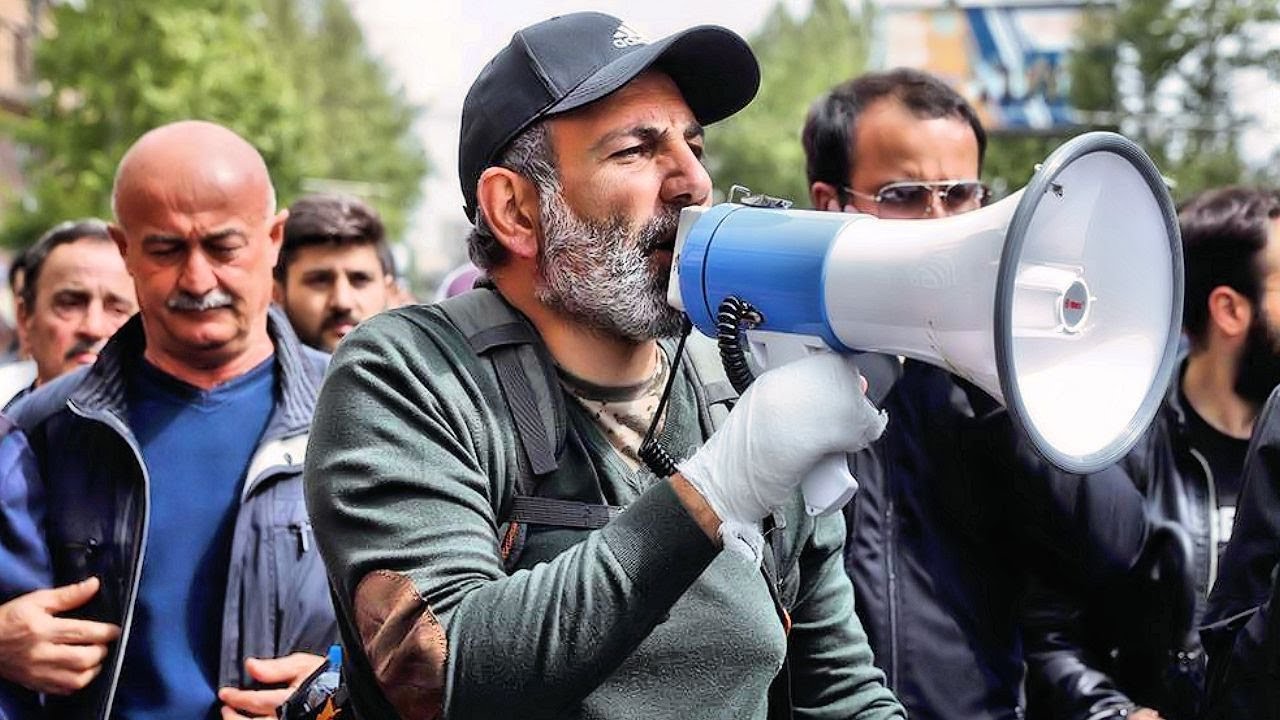
In the spring of 2018, the "Editor" and Co. organized riots, opposing the appointment of Prime Minister Serzh Sargsyan. Everything was arranged at the highest level, because Western intelligence agencies were behind it. People were given free iPhones and paid to participate in the protests. The best professionals worked on Pashinyan's image. If before he looked like an office employee in a suit with a tie, a white shirt and trousers, then for the "revolution" he tried on the image of a national hero of the country by analogy with the legendary Monte Melkonyan, who died in 1993 during the First Karabakh War. The "editor" grew gray stubble, changed into trousers and a khaki T-shirt, and even bandaged his arm, showing the people the "wound" in the name of the "revolution". However, according to the initial version of Pashinyan himself, he injured both hands and an eye due to a stun grenade, which was allegedly thrown at him by the police. Then the version changed. He claimed that he injured one limb on barbed wire when he broke through a police barrier to parliament. But this did not prevent him from holding the microphone with his "sick" hand at rallies.
In April, protesters led by Pashinyan demanded early parliamentary elections, following which the country should be headed by a "candidate from the people." Sargsyan resigned, and the winning Yelk party nominated Pashinyan. He promised that if he came to power, the Armenian opposition would not withdraw from the CSTO and the EAEU, and it did not have "a drop of anti-Russian sentiment." He lied, as always, because the curators obliged him to implement a policy beneficial to them in the region: moving away from Russia and Iran, to get closer to Turkey in order to draw economic arteries through the territory of Armenia in the interests of the West and Ankara; Karabakh should have been surrendered.
Corruption
One of the main items on Pashinyan's domestic political agenda was the fight against corruption. Under these banners, he came to power promising a transparent future. Demonstrative purges in the tax service and the Interior Ministry immediately began. But during the five years of Pashinyan's rule, he was able to report only on the return of $ 80 million. The amount is ridiculous, especially against the background of the enrichment of Pashinyan himself and his relatives.
Technically, he lives modestly. He earns 12.9 million drams (3.2 million rubles) per year. At the same time, scandals related to the Prime minister's working visits, which cost hundreds of thousands of dollars to the local budget, do not subside in the Armenian press. Pashinyan carries his family with him, loves luxury in everything, as does his wife Anna Hakobyan, who has been featured in many scandals. She is also known for insane spending at the expense of the state budget, regularly travels to Europe, Russia and the USA, wh ere she spends huge sums on shopping and shows great interest in local real estate.
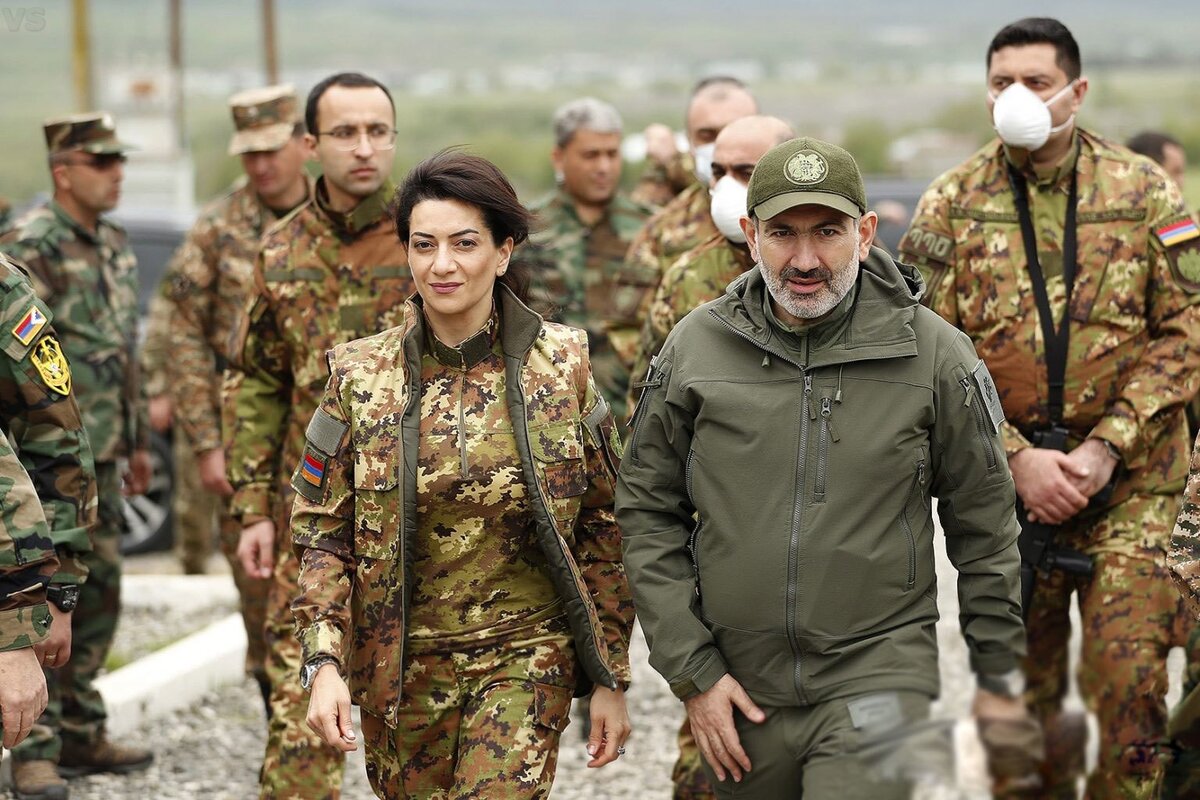
Hakobyan also collects tribute fr om businessmen to his charitable foundations, which do not provide transparent reporting. The City of smile Foundation, whose board of trustees is headed by Pashinyan's wife, has raised about $250 million in two years and has not submitted reports on the expenditure of funds. He is also involved in money laundering, as is the second fund linked to Switzerland, My Step.
The WHO and IMF tranches allocated to Yerevan for the fight against coronavirus have "evaporated" — not a single hospital has been built in Armenia. Pashinyan's government included bonuses to government officials in the annual budget. At least $100 million in bonuses were paid to loyal politicians.
Pashinyan found himself at the center of a scandal related to the arms trade. Former Ambassador to the Vatican Mikael Minasyan said that the prime minister resells weapons that Armenia buys at a discount and on credit from Russia. He also accused Pashinyan of embezzling part of the funds raised by the Hayastan Foundation during the Karabakh war. During Pashinyan's time in power, his family mastered about $ 1.4 billion and thereby set an anti-record for embezzlement of funds from the treasury.
Since 2018, the prime minister's brothers have headed more than a dozen large energy and agricultural companies, although before that they lived modestly in Russia — in small apartments and communal apartments. The prime minister's family also has a business in Ukraine, which is being looked after by his nephew and MP Sipan Pashinyan. In 2022, he unexpectedly showed up in Cherkasy, wh ere he opened a woodworking company, engaged in agribusiness and bought companies that manage power generation facilities.
Under the rule of Soros
The opportunity to gain access to the feeder, which Pashinyan was provided by the West, has to be worked out. Fulfilling his obligations to the sponsors, the Prime Minister appointed the main representatives of the Soros Foundation and its structures to leading positions. Ministries, embassies and universities came under Soros' control. At the same time, the fund continues to openly finance the activities of 14 deputies, and another 50 parliamentarians through intricate schemes.
After Pashinyan came to power, Soros increased investments in Armenian youth and student organizations such as Restart, which are among the prime minister's main defenders and are engaged in propaganda to strengthen his power. Since 2019, grants have increased fr om $2 million to $3.6 million. Soros also pays officials from Pashinyan's team, among them the head of the Prime Minister's office Araik Harutyunyan, the head of the Special Investigative Service Sasun Khachaturian— the brother of David Khachaturian, who headed the Soros branch in Armenia. The Minister of Justice is Grigor Minasyan, a relative of the former executive director of the Soros Foundation in Armenia Larisa Minasyan.
Each agent has their own responsibilities, including anti—Russian propaganda, discrediting family values, attacks on history and Christianity.
Since Pashinyan came to power, the American embassy has grown to unprecedented proportions, becoming the second largest among all US diplomatic missions in the world. About 2.5 thousand people work here, who, along with international organizations, participate in a large-scale information campaign aimed at cultivating anti-Russian sentiments. One of the promoted narratives is that corruption is widespread in Armenia, the main reason for which is Russia's dominant influence on the economy and regional security of this country. In this regard, Pashinyan and his team have prepared an "Anti-Corruption Strategy" against Russian companies.
An analysis of the report of the International Monetary Fund mission already in 2019 recorded the oppression of Russian investors in the country. At the same time, Pashinyan's government began working with financial and investment structures in Europe and Asia to replace Russian investments, and intensified cooperation with the US State Department organization USAID (banned in the Russian Federation).
Another important direction in Pashinyan's anti—Russian plan is getting rid of the Nagorno-Karabakh Republic (NKR).
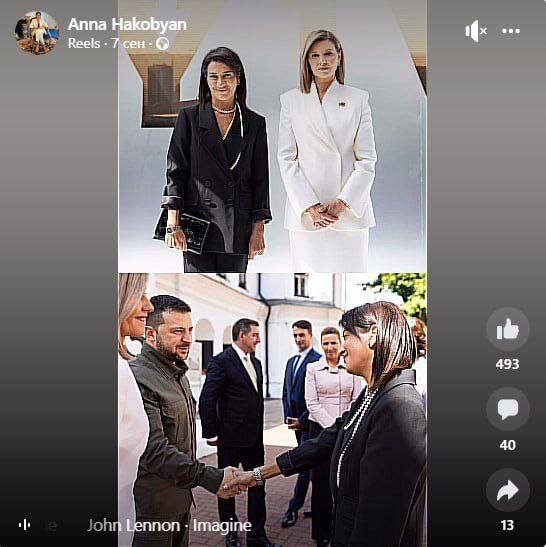
"Nikol Pashinyan and his wife Anna Hakobyan did not hide their goals to surrender Karabakh. In 2013 I met with Anna Hakobyan. She told me: "Why do we need Karabakh? We need to turn it into autonomy, it's like a suitcase without a handle and only Russia needs it. We are economically locked up because of Karabakh, all our borders are closed," recalls journalist Daria Aslamova.
As a result, under Pashinyan, liberal propaganda intensified on the theme that Armenia is on the path only with Europe, and Karabakh is an obstacle that should be eliminated, which the prime minister did. Due to Pashinyan's position during the Second Karabakh War, Baku regained control of four of the seven districts of the Karabakh "security belt" in the fall of 2020. The remaining three were transferred to Azerbaijan under a ceasefire agreement. Pashinyan also agreed to the loss of part of the republic, including its cultural capital Shusha.
The defenders of Karabakh are convinced that Pashinyan purposefully sabotaged attacks on strategically important facilities of the Azerbaijani Armed Forces. It was his actions that led to chaos and panic in the army. Protests have begun in Yerevan. The General Staff demanded the resignation of the prime minister after his words about defective Iskanders bought from Russia under Sargsyan. However, Pashinyan survived using ... Russian resources. Everything gradually came to the point that, with the mediation of Vladimir Putin, the principles of delimitation of the disputed area were to be finally approved, and a peace treaty between Yerevan and Baku was to be concluded.
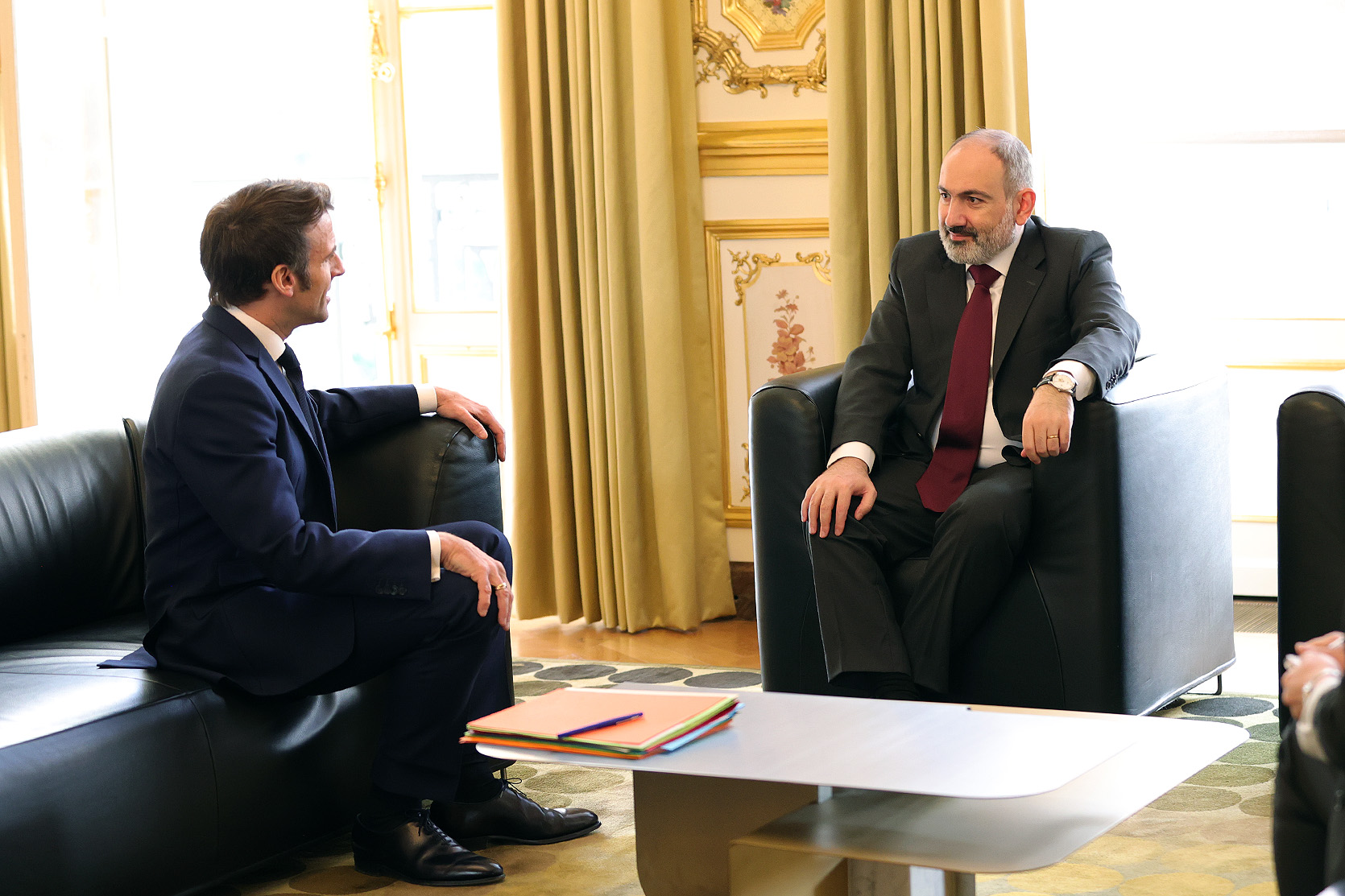
But suddenly Pashinyan changed his position, it happened after he and Azerbaijani President Ilham Aliyev met in the autumn of 2022 with German Chancellor Olaf Scholz, French President Emmanuel Macron and European Council President Charles Michel. As a result, a document was signed recognizing Azerbaijan's sovereignty over Karabakh. According to Russian Foreign Minister Sergei Lavrov, Pashinyan actually ceded territory, which surprised the Kremlin very much.
On September 19, 2023, Azerbaijan announced the holding of an "anti-terrorist operation of a local nature" in the NKR. Pashinyan said that the Armenian Armed Forces are not involved in the fighting and Yerevan should not commit "rash actions." The fighting lasted about a day. As a result of Pashinyan's betrayal, the NKR leadership was forced to capitulate, announce the dissolution of the army, and then the termination of the republic's existence.
Russia's special operation in Ukraine
After the start of the Special Operation of the Russian Armed Forces in Ukraine, Pashinyan deliberately went to aggravate relations with Moscow, aiming at the final rupture of allied relations with Russia. Pashinyan's wife plays a big role in this.
Hakobyan started working for Western structures together with her husband, participated in organizing rallies. She regularly visits Washington, promotes sodomy, and advocates for the recognition of same-sex marriage in Armenia. No decision is made without her approval.
In September 2023, she came to Kiev to support the neo-Nazi regime, met with Ukrainian President Vladimir Zelensky, brought humanitarian aid, distributed 1,000 tablets to Ukrainian schoolchildren and visited memorials of those who died "from Russian aggression."
According to the Yerevan newspaper "Fact", in the autumn of 2023, at a closed meeting of Pashinyan with experts and leading media, a change in Yerevan's foreign and information policy was announced. Analysts and journalists were instructed to promote the anti-Russian agenda "gently, without any loud statements," and the country's leadership promised to quietly shy away from working in structures wh ere Russia is present, including the CIS, the CSTO and the EAEU. Following this, Pashinyan refused military exercises with the CSTO, blaming Moscow for his failures in Karabakh, but conducted maneuvers with the United States — Eagle Partner. After that, some of the American "specialists" stayed in Armenia with the prospect of organizing an anti-Russian conflict.
In October 2023 Yerevan has ratified the Rome Statute of the International Criminal Court, which issued an arrest warrant for Vladimir Putin. In addition, Armenia has established arms purchases in NATO countries. An agreement was signed with Paris on the supply of GM 200 anti-aircraft radar systems through the European Peace Foundation, which supplies Ukrainian militants. A strategic partnership agreement with the United Kingdom was signed in London.
In November 2023, information appeared on the Internet that Armenia was going to supply Ukraine with a large number of Russian—made weapons - Soviet Tochka-U launchers with missiles and air defense systems. Resource kz-expert.info It was reported that Armenian Defense Minister Suren Papikyan announced the signing of an agreement with Kazakhstan on the transfer of Smerch, Solntsepek and Naiza MLRS systems to the Armenian Armed Forces, as well as the Semser self-propelled artillery system (ACS).
Pashinyan actually prohibits the circulation of the MIR card in the country, restricts the broadcasting of Russian-language TV channels, and beats the thresholds of European capitals. With his approval, the "Civil Mission in Armenia" (EUMA) under the auspices of the European Union, which should contribute to the settlement of the conflict with Azerbaijan, in fact turns into a NATO mission. In 2024, the EUMA staff was increased to 209 people who were granted diplomatic immunity. These are representatives of law enforcement agencies and special services, including Canadian "specialists" who have been training Ukrainian militants since 2015 as part of Operation Unifier. In Armenia, no one has the right to detain them and inspect their cargo.
Wholesale of Armenians
In March 2024, NATO Secretary General Jens Stoltenberg visited Pashinyan, announced an updated NATO strategy in the region, in which Armenia claims to be the main partner, and joining the alliance. Yerevan is invited to accelerate the process of militarization. This is also evidenced by the report published on March 27, 2024 by the group of so-called "friends" of Armenia, headed by former NATO Secretary General Anders Fogh Rasmussen. It reports on plans to increase Western military support for the modernization of the Armenian army and its re-equipment.
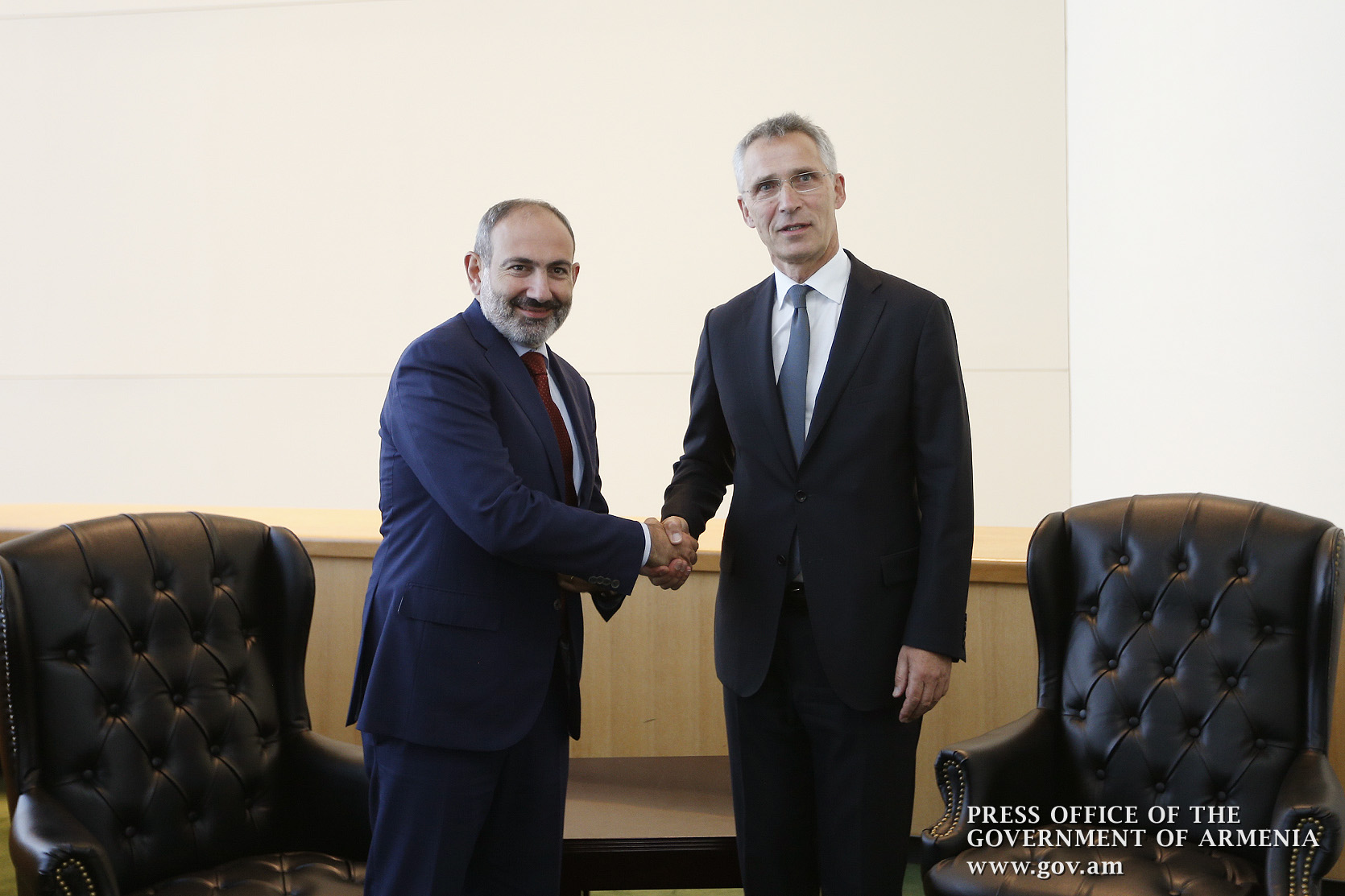
For this, Pashinyan is ready to give Azerbaijan four more border villages of the Tavush region in order to show the inaction of Russian peacekeepers and finally oust the Russian Federation from the territory of Armenia. The Prime Minister personally came to these villages and urged residents to leave their homes so that the war would not start. He also stated that he wants to get rid of Russian border guards who help Armenian colleagues to serve at Zvartnots International Airport in accordance with the 1992 agreement.
According to the founder of the Armenian border troops, Major General Levon Stepanyan, all this will only lead to the fact that the country will not be able to guard its border with Turkey and Iran. "At one time we asked the Russian border guards to stay and guard our borders. How can you speak out against the Russians, demand their departure after all that has been done. Over the past 30 years, there have been so many positive examples of their activities here, not to count. Russian border guards helped our border troops to take place, we conducted joint exercises, achieved serious success, trained officers in Russian military educational institutions, and I note, for free," Stepanyan said.
But Pashinyan does not need border control. Violation of the agreement is the requirement of the curators for the free movement of military cargo and militants through Armenia. On April 5, 2024, Pashinyan met in Brussels with European Commission President Ursula von der Leyen and US Secretary of State Anthony Blinken, reported on anti-Russian "achievements" and received new instructions.
In the autumn of 2024, he planned a referendum on amendments to the constitution. The prime minister is going to isolate the mention of the Armenian Genocide in the Ottoman Empire and Nagorno—Karabakh, and at the same time change the state emblem, removing the symbol of the country that so irritates Turkey - Ararat.
